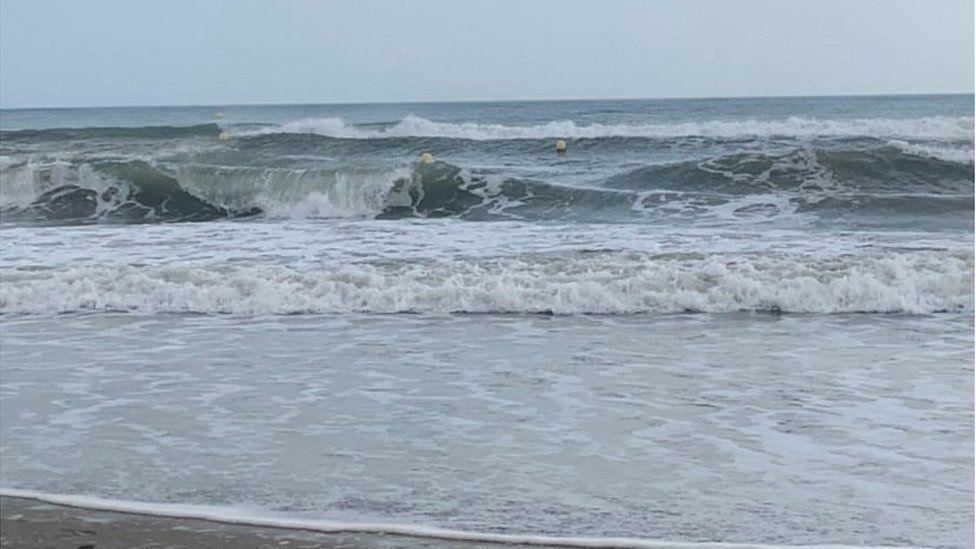French storms: Nine drown in choppy Mediterranean sea
- Published

At least nine people have drowned in rough Mediterranean seas in the south of France, officials have said.
They were swept out to sea while swimming in choppy waters on several different beaches on the south coast.
High winds had stirred up the seas, causing a swell, French media report.
Five people in their 60s and 70s died in Hérault, two aged 58 and 71 died in Bouches-du-Rhône, and another two died on a beach in Leucate, Aude.
Emergency services in Hérault said they had tried to save 12 people drowning off beaches in Agde, La Grande-Motte, Marseillan, Serignan and Vias. Seven were rescued but five died.
The region was then placed on an orange alert for thunderstorms, rains and floods.
"I cannot understand how people got into the water when the seas were rough," Jordan Dartier, the mayor of Vias, told French broadcaster LCI. One man drowned there after reportedly falling from rocks.
"It's a dramatic day for our region," he added.
Hérault's fire and rescue service had urged people to avoid swimming.
"Choppy seas are making water activities dangerous," the service tweeted in the afternoon, with a video of waves crashing into the shoreline.
The two swimmers who died in Cassis and La Ciotat in the Bouches-du-Rhône area drowned after being dragged out to sea, local media report.
Rescue officials speculated that the warm temperature of the water had tempted people to swim, even though conditions were not ideal.
Grégory Coutarel, head of search and rescue in Bouches-du-Rhône, said: "On weekdays, enjoying the sea at 24C is quite exceptional, and can tempt tourists."
He added that, as the weather now stays warm for longer, lifeguards should be kept in place "until the end of September or even until mid-October".
People do not fully understand how dangerous choppy seas can be, local fire chief Aurélien Manenc told broadcaster TF1.
"The water is warm, you think you are going to have fun - and quickly you are pulled towards the open sea and towards the bottom, and you get exhausted trying to come back. This is what causes drowning," he said.
By late afternoon, police officers in Hérault were evacuating any beaches without life guards.
"Wednesday 15 September will remain a black day for the Hérault coast," wrote local newspaper Midi Libre.
Related Topics
- Published24 July 2017
- Published3 May 2017
- Published30 August 2019